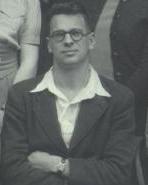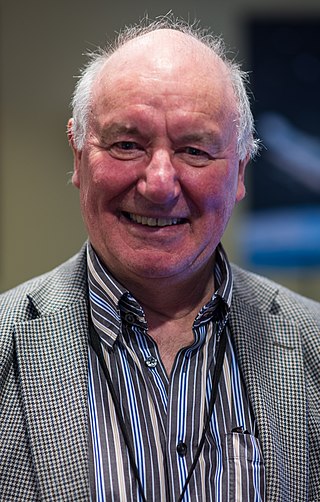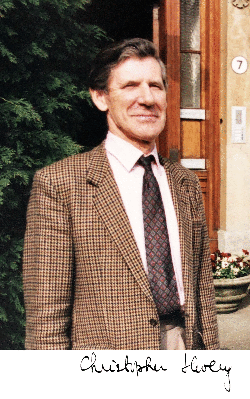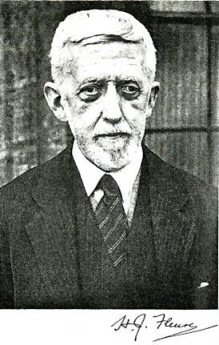Related Research Articles

Sir Maurice Vincent Wilkes was an English computer scientist who designed and helped build the Electronic Delay Storage Automatic Calculator (EDSAC), one of the earliest stored program computers, and who invented microprogramming, a method for using stored-program logic to operate the control unit of a central processing unit's circuits. At the time of his death, Wilkes was an Emeritus Professor at the University of Cambridge.

The Department of Computer Science and Technology, formerly the Computer Laboratory, is the computer science department of the University of Cambridge. As of 2023 it employed 56 faculty members, 45 support staff, 105 research staff, and about 205 research students. The current Head of Department is Professor Alastair Beresford.

David John Wheeler was a computer scientist and professor of computer science at the University of Cambridge.
Howard Everest Hinton was a British entomologist and Professor who studied beetles.
Sir Frederic Calland Williams,, known as F.C. Williams or Freddie Williams, was an English engineer, a pioneer in radar and computer technology.

Malcolm Sim Longair is a British physicist. From 1991 to 2008 he was the Jacksonian Professor of Natural Philosophy in the Cavendish Laboratory at the University of Cambridge. Since 2016 he has been Editor-in-Chief of the Biographical Memoirs of Fellows of the Royal Society.

Leon Mestel was a British-Australian astronomer and astrophysicist and Emeritus Professor at the University of Sussex. His research interests were in the areas of star formation and structure, especially stellar magnetism and astrophysical magnetohydrodynamics. He was awarded both the Eddington Medal (1993) and the Gold Medal of the Royal Astronomical Society. Following his retirement, he wrote several obituaries and biographical articles on physicists and astrophysicists.

Michael John Caldwell Gordon was a British computer scientist.
Samuel Francis (Frank) Boys was a British theoretical chemist.

Christopher Hooley was a British mathematician and professor of mathematics at Cardiff University.
Professor Stanley J. Gill was a British computer scientist credited, along with Maurice Wilkes and David Wheeler, with the invention of the first computer subroutine.

Herbert John Fleure, was a British zoologist and geographer. He was secretary of the Geographical Association, editor of Geography, and president of the Cambrian Archaeological Association (1924–25), Royal Anthropological Institute (1945–47) and Geographical Association (1948–49).

The Department of Chemistry at the University of Manchester is one of the largest departments of Chemistry in the United Kingdom, with over 600 undergraduate and more than 200 postgraduate research students.
The Cameron Prize for Therapeutics of the University of Edinburgh is awarded by the College of Medicine and Veterinary Medicine to a person who has made any highly important and valuable addition to practical therapeutics in the previous five years. The prize, which may be awarded biennially, was founded in 1878 by Andrew Robertson Cameron of Richmond, New South Wales, with a sum of £2,000. The University's senatus academicus may require the prizewinner to deliver one or more lectures or to publish an account on the addition made to practical therapeutics. A list of recipients of the prize dates back to 1879.
References
- ↑ Martin Campbell-Kelly, Department of Computer Science, University of Warwick, UK.
- ↑ Campbell-Kelly, M. (2014). "Sir Maurice Vincent Wilkes 26 June 1913 – 29 November 2010". Biographical Memoirs of Fellows of the Royal Society . 60: 433–454. doi:10.1098/rsbm.2013.0020.
- ↑ Campbell-Kelly, Martin. (1980). Foundations of computer programming in Britain 1945–1955 (PhD thesis). Sunderland Polytechnic.
- ↑ Books by Martin Campbell-Kelly, Google Books.
- ↑ Martin Campbell-Kelly (1989). ICL: A Business and Technical History. Clarendon: Oxford University Press. p. 409. ISBN 0-19-853918-5.
- ↑ Martin Campbell-Kelly and William Aspray (1996). Computer: A History of the Information Machine , Basic Books/HarperCollins. ISBN 0-465-02989-2.
- ↑ Martin Campbell-Kelly; Mary Croarken; Raymond Flood; Eleanor Robson, eds. (2003). The History of Mathematical Tables. Oxford University Press. ISBN 978-0-19-850841-0.
- ↑ Martin Campbell-Kelly (December 2005). "The User-friendly Typewriter". The Rutherford Journal . 1.
- ↑ Martin Campbell-Kelly (September 2009). The Origin of Computing, Scientific American .
- ↑ Campbell-Kelly, M. (2006). "David John Wheeler. 9 February 1927 -- 13 December 2004: Elected FRS 1981". Biographical Memoirs of Fellows of the Royal Society . 52: 437. doi:10.1098/rsbm.2006.0030.
- ↑ "Professor Martin Campbell-Kelly". Gresham College. Retrieved 30 December 2021.
- ↑ Martin Campbell-Kelly his obituaries of prominent computer science figures in The Guardian
- ↑ Wales, The Learned Society of. "Martin Campbell-Kelly". The Learned Society of Wales. Retrieved 29 August 2023.